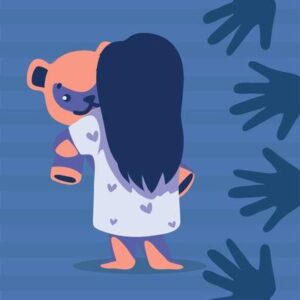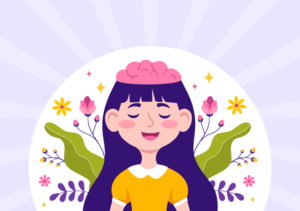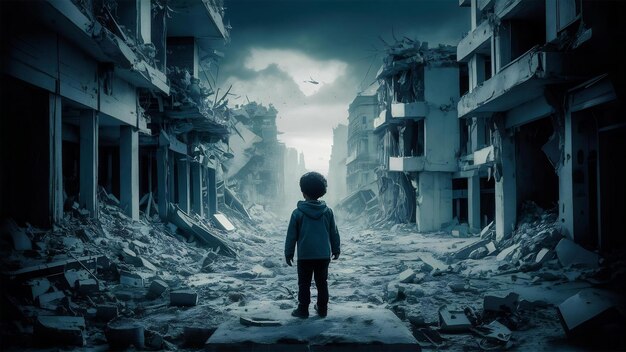Childhood
Childhood is a time of safety, exploration, and bonding. It’s during these early years that we:
• Build our core beliefs about love, safety, and trust.
• Learn emotional regulation.
• Build relationships with caregivers and others.
• Develop a sense of identity and self worth.
✓ Childhood is the time in a person’s life from birth to around age 12 (sometimes up to 18). It’s when we are growing, learning, and developing—physically, emotionally, and mentally
During childhood, we learn:
• How to talk, think, and express feelings
• How to make friends and trust others
• What love, safety, and support feel like
A safe and loving childhood helps us grow into healthy, confident adults
Trauma
Trauma is a psychological and emotional response to an event—or series of events—that are deeply distressing, overwhelming, or harmful. Trauma can affect anyone, regardless of age, background, or culture. It often changes overthinking , feeling, behaviour and relationship with others.

Types of Childhood Trauma
1. Physical Abuse
Intentional use of physical force that causes injury or harm. Examples: hitting, shaking, burning, or any form of physical
punishment that causes pain or injury.
2. Sexual Abuse
Any sexual activity imposed on a child without consent or understanding. Examples: inappropriate touching, molestation, exploitation, or exposure to sexual content.
3. Emotional or Psychological Abuse
Actions or words that harm a child’s self-worth or emotional well-being. Examples: constant criticism, humiliation, rejection, threats, or withholding love and support.
4. Neglect : Failure to provide for a child’s basic needs, including physical and emotional care.
Types of neglect:
Physical neglect: lack of food, clothing, shelter, or medical care.
Emotional neglect: ignoring the child’s emotional needs, lack of affection, or attention.
5. Witnessing Domestic Violence
Exposure to violence between caregivers or family members. Even if the child is not directly harmed, witnessing violence can
cause trauma.
6. Parental Loss or Separation
Death, abandonment, incarceration, or prolonged separation from a parent or primary caregiver.
7. Household Dysfunction
Growing up in an environment with substance abuse, mental illness, or criminal behavior in the family.
8. Community or School Violence
Exposure to violent events outside the home such as shootings, riots, or neighborhood crime.
9. Bullying:
Bullying is repeated, intentional aggression or intimidation directed at someone perceived as vulnerable
Types of Bullying:
1. Physical bullying – Hitting, pushing, tripping, damaging possessions.
2. Verbal bullying – Name-calling, insults, threats, teasing.
3. Social or relational bullying – Exclusion, spreading rumors, public humiliation.
4. Cyberbullying – Harassment through digital platforms (texts, social media, etc.)
Childhood Trauma affects seen in adults
1. Anxiety and Depression: Persistent feelings of fear, sadness, or hopelessness.
2. Post-Traumatic Stress Disorder (PTSD): Flashbacks, nightmares, hypervigilance.
3. Substance Abuse: Using drugs or alcohol to numb pain or manage emotions.
4. Mood Disorders: Bipolar disorder, emotional instability.
5. Trust Issues: Trouble believing others will be safe or reliable.
6. Attachment Problems: Fear of abandonment or clinging too tightly.
7. Difficulty with Boundaries: Either being overly closed off or too dependent.
8. Conflict in Intimacy: Challenges in emotional or physical closeness.
9. Struggles managing anger, sadness, or anxiety.
10. Oversensitivity ,Emotional numbness .
11. Physical Health Problems like Chronic stress: Heart disease, Diabetes Autoimmune disorders, Chronic pain or fatigue Higher rates of sleep disorders and headaches.
12. Difficulty concentrating or memory problems.
13. Low self-esteem or feelings of worthlessness.
14. Perfectionism or self-criticism.
15. Risk-taking or self-destructive behaviors.
Healing From Childhood Trauma
• Self love : Show some love, care, warmth to your inner child.
• Be mindful : Try to be in present moment.
• Daily routine: Make a healthy Sleep pattern, eating pattern, exercise.

TIMES HEALTH CLINIC FOCUS ON
• To make this world a better place to live.
• Times health is the only clinic that saves times and mental health of the people.
• Patients can easily open up to the psychologist without fear of judgement.
• Our expert will help you to become emotionally independent.
Why Choose Times Health Care For Counselling
• CONFIDENTIALITY : It’s a ethical and legal duty of times health care to protect all your private information from being shared without your consent .
• EMPATHY : we understand and validate individual’s feeling.
• BUILDING RAPPORT : This mental wellness clinic creates a safe , respectful and trusting relationship with every individual.
• UNCONDITIONAL POSITIVE REGARD: Accepting every person without judgement and respecting them as a person.
‘REMEMBER WITHOUT RIGHT SUPPORT OF THE THERAPIST AND PSYCHOLOGIST, YOU MIGHT FEEL STUCK
AND RE -TRAUMATIZED.’
· Everyone heals differently. There’s no set timeline.
· It’s okay to ask for help. You don’t have to go through it alone.
“”OPEN YOUR HEART WITH US YOU ARE NOT ALONE WE ARE HERE TO HELP YOU.””


